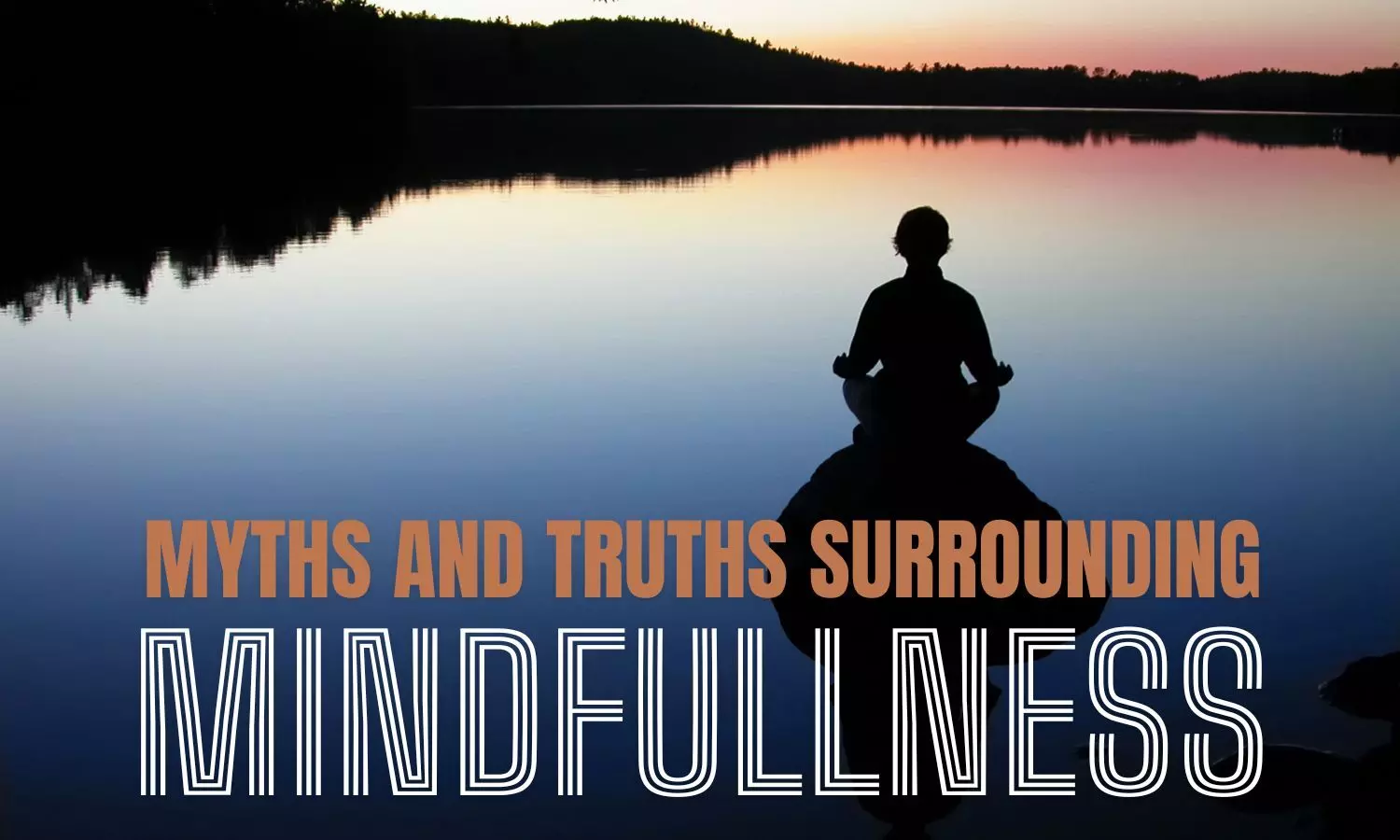The Biggest Myths and Truths Surrounding Mindfulness: 5 myths you should stop believing
Have you ever found yourself struggling with practicing mindfulness? Don't worry! This article will help you debunk some common myths that may be holding you back from embracing this beneficial practice.
image for illustrative purpose

What is mindfulness?
Sometimes, when people think of mindfulness, they often see someone sitting on a cushion alone in their room or a serene setting with their eyes closed. However, mindfulness is more than just clearing your mind or posing in silence for hours. To tell you the truth, it is the ability to know what's happening in your head at any given moment without getting carried away.
Mindfulness has recently become a buzzword, but many individuals still get a lot wrong when they talk about it. And if you are one of them, you've come to the right place. In this article, we have covered some of the myths and truths surrounding mindfulness. So, without further ado, let's delve into it right now.
Myth #1: Mindfulness and meditation are the same thing
Truth: If you think mindfulness and meditation are the same, you are certainly sailing on the wrong boat. To resolve your dilemma, it's important to understand the meaning of both. If we talk about mindfulness, it is a state of awareness and presence at the moment, while meditation is a practice or technique used to cultivate mindfulness. In addition, mindfulness can be incorporated into daily activities, while meditation typically involves having dedicated time for practice.
Myth #2: You need to be "Good" at mindfulness to benefit
Truth: The journey of mindfulness is a process, not a perfection. So, like any other skill, mindfulness takes time and practice to improve. In fact, it's okay to have moments of struggle or distraction during mindfulness practice, as the benefits come from the effort put in, not from being perfect. Therefore, the important thing is to be kind to yourself, acknowledge your dawdling mind, and gently guide your attention back to the present.
Myth #3: Mindfulness is only for spiritual leaders
Truth: Mindfulness is a secular skill for everyone because it is a mental practice with roots in Eastern traditions, but its benefits are universally applicable. Whether you are an athlete seeking peak performance or a busy professional striving for greater focus, mindfulness can benefit everyone. In fact, Dr Andy Puddicombe, a former Buddhist monk and co-founder of Headspace, clarifies that mindfulness is a universal skill that anyone can learn. It is therefore accessible to everyone and is not reserved for yogis and gurus.
Myth #4: Mindfulness is a happy pill
Truth: Mindfulness has nothing to do with simply relaxing and becoming passive. It has something to do with living in the moment. And when you become more mindful, you automatically become happier because you are aware of every single moment. So, to be clear, happiness is the byproduct of being mindful; it is certainly not a happy pill. According to Dr. Amishi Jha, a neuroscientist and author of "Peak Mind," mindfulness is the practice of monitoring your thoughts and feelings without judgment. Imagine watching clouds float across the sky. You acknowledge them, but they do not carry you away.
Myth #5: Mindfulness is a cure-all
Truth: Undeniably, mindfulness is a powerful tool, but it is not a magic bullet. It doesn't erase your problems or guarantee happiness. It only helps you manage your stress, navigate difficult emotions and cultivate self-compassion. To highlight the fact, according to Dr Ronald Siegel, psychologist and author of "The Mindfulness Solution," mindfulness can be a valuable addition to coping with life's inevitable hurdles. It is important to recognise that mindfulness is just one part of a larger toolkit for overall wellness.
Therefore, take a deep breath, be present, and embrace the power of mindfulness by understanding the truth behind the practice.

